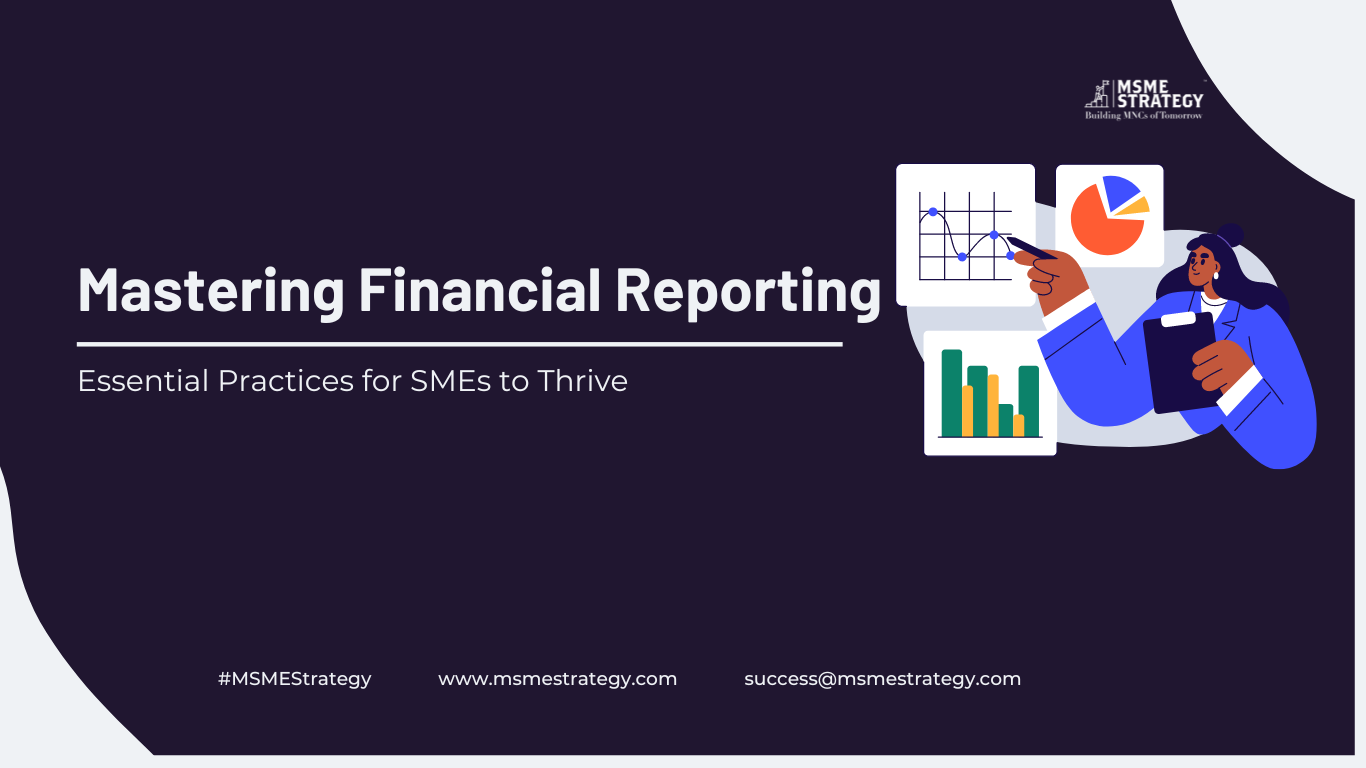Essential Steps to Improve Financial Reporting for SMEs
Accurate financial reporting involves establishing systematic processes and utilizing the right tools. By adopting the following practices, small businesses can streamline their financial management and maintain the integrity of their reports.
1. Utilize Accounting Software
Investing in reliable accounting software is the cornerstone of accurate financial reporting for small businesses. These tools simplify data entry, automate processes, and provide real-time insights, allowing business owners to have a clear view of their financial health.
Best Practices:
– Use software like QuickBooks, Xero, or Wave to automate invoicing, payroll, and report generation.
– Choose cloud-based software for access to financial data anywhere and anytime.
– Regularly update software to benefit from the latest features and compliance updates.
2. Regularly Reconcile Accounts
Reconciliation is essential for identifying discrepancies or errors in financial records. SMEs should frequently reconcile bank accounts, credit card statements, and other financial records to ensure that every transaction is accounted for.
Best Practices:
– Schedule monthly or even weekly reconciliation of all financial accounts.
– Automate reconciliation through accounting software whenever possible.
– Compare transactions in your accounts with receipts and invoices to spot errors or fraudulent activity.
3. Document and Organize Financial Records
A systematic approach to documenting and organizing financial records reduces the risk of errors and ensures compliance. By keeping thorough records, businesses can retrieve documents easily for audits, tax filings, and performance analysis.
Best Practices:
– Store receipts, invoices, and bank statements digitally using cloud storage solutions.
– Implement a consistent filing system, categorizing expenses, income, and liabilities.
– Periodically review records to ensure all documents are present and well-organized.
4. Seek Professional Assistance
The SMEs can benefit from the guidance of professional accountants or financial advisors. These experts help navigate complex reporting requirements, ensuring compliance with tax laws and providing strategic insights for better financial management.
Best Practices:
– Hire a part-time accountant or outsource your bookkeeping to a professional.
– Seek regular consultations with financial advisors to review financial statements.
– Use their expertise to optimize tax planning and enhance profitability.
Consequences of Inaccurate Financial Reporting
Inaccurate financial reporting can have severe consequences for small businesses. The following are some key risks that can result from poor financial practices:
1. Misinformed Decision-Making
Without accurate financial reports, business owners may make poor decisions, such as misallocating resources or overspending on non-essential expenses. This often results in reduced profitability and missed growth opportunities.
2. Legal and Regulatory Issues
Inaccurate or incomplete financial reports can lead to regulatory non-compliance. This could result in penalties, fines, or legal action, affecting the business’s reputation and stability.
3. Loss of Stakeholder Trust
Stakeholders, including investors, lenders, and partners, rely on accurate financial information to make decisions. Inaccurate reporting can erode trust, limiting funding opportunities and damaging business relationships.
4. Financial Instability
Without a clear understanding of cash flow, revenue, and expenses, small businesses may struggle with liquidity issues. Financial instability reduces the ability to plan for future growth or secure necessary financing.
Best Practices for Financial Reporting for SMEs
To establish effective financial reporting, small businesses should follow these best practices:
1. Regularly Review and Analyze Financial Statements
Frequent analysis of financial statements, including the balance sheet, income statement, and cash flow statement, helps business owners track performance and identify trends. This proactive approach enables businesses to adjust strategies and optimize their financial health.
Best Practices:
– Set aside time each month to review financial statements with your accountant or financial team.
– Use these reviews to spot trends, assess profitability, and set future goals.
2. Implement Internal Controls
Establishing internal controls helps to prevent fraud and ensure accurate reporting. Simple controls, such as segregating financial duties or setting approval limits for expenses, enhance accountability.
Best Practice:
– Segregate accounting responsibilities between employees to avoid conflicts of interest.
– Implement checks and balances for every financial process, including approval of expenses and payroll.
3. Conduct Regular Audits
Internal audits help small businesses identify weaknesses in their financial reporting processes and detect errors. External audits, conducted by independent parties, offer an extra layer of assurance, ensuring compliance and accuracy.
Best Practice:
– Perform quarterly internal audits to check for discrepancies in financial records.
– Periodically engage external auditors to enhance the credibility of financial reports and ensure compliance.
4. Educate and Train Employees
Financial literacy among staff is crucial for maintaining accurate records and ensuring accountability. Even in small businesses, staff involved in financial transactions should have a basic understanding of financial reporting.
Best Practice:
– Provide training on accounting principles and the importance of accurate data entry.
– Establish clear financial procedures for employees to follow.
5. Engage in Continuous Improvement
The financial landscape, including tax regulations and industry standards, is constantly changing. Small businesses should regularly evaluate and update their financial reporting processes to stay compliant and efficient.
Best Practice:
– Stay updated on changes in tax regulations and accounting standards relevant to your industry.
– Seek ways to streamline your financial reporting using the latest technology and best practices.
Need help streamlining your financial reporting practices? At MSME Strategy Consultants (https://msmestrategy.com), our experienced consultants are ready to assist. From setting up accounting systems to ensuring compliance with global financial standards, we provide the expert support your business needs to thrive.
#MSMEStrategy #FinancialReporting #SMEs #MicroBusinesses #AccountingSoftware #BusinessGrowth #InternalControls #CashFlowManagement






